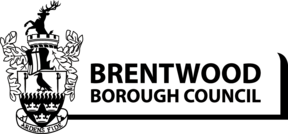Why some applications are refused
Not every development proposal is suitable or sustainable for its local surroundings. Development should cause minimal harm to the environment, and issues of public importance must be considered.
This means we may refuse some applications. About 1 in 5 applications are refused.
We encourage pre-application discussions about proposed developments. These try to find an acceptable form of development. There are always cases, however, where agreement cannot be achieved.
During the pre-application process we try to negotiate improvements to proposals. Once an application is submitted there is limited time to negotiate more improvements.
If we consider a minor amendment of an application would overcome a potential reason for refusal, we will normally offer an opportunity to make the necessary changes, as long as there is time for the change to be made.
If it would significantly change the nature of the proposal, it is best to leave it to a new application. If a refusal is made on a point of principle – for example, because of conflict with green belt policy – no amendment may be acceptable.
Sometimes we grant permission but subject to conditions that the applicant may find unacceptable. In those cases, there is a right of appeal against the conditions. The arrangements for such an appeal are the same as those for a refusal of permission.
What to do if your application is refused
You can appeal against our refusal of a planning application. The law does not give this right of appeal to anyone other than the applicant. You should first decide whether an appeal is necessary.
We outlined the reasons for refusing permission, or imposing conditions, in the decision notice. This includes the relevant planning policies. It may help to read the planning officer's report to understand the decision better.
Reading the report and, if necessary, speaking with the planning case officer involved should help you decide whether a revised application would stand a better chance of success. If this option sounds promising, you can submit a new application.
If the proposal is sufficiently revised and submitted within 1 year of the original application being submitted, you will not need to pay another fee for the second application. The planning case officer will be able to advise on this.
If an application is refused, planning officers will be available to meet the applicant or their agent to discuss a revised proposal that addresses the reasons for refusal. Prior submission of amended plans, in sketch or full form, is essential. It is important to note that a better result cannot be guaranteed.
Your right of appeal
If it seems unlikely that you can reach agreement with us you can exercise your right of appeal to the Planning Inspectorate.
The Planning Inspectorate is a government agency that decides planning appeals on behalf of ministers.
Our refusal notice will give you details of how to contact the Planning Inspectorate. You must contact them within 6 months of our refusal if your application is not householder development. If it is a householder development the time limit for submitting an appeal is 12 weeks from the date of decision. There is currently no fee involved.
Very rarely a government minister decides an appeal. Inspectors decide the vast majority. Your appeal can be considered in 3 ways:
1. Written Representatives
This is the most popular form of appeal and, as the name suggests, involves written statements. This has the advantages of being relatively quick and inexpensive.
Appeals involving householder development or tree works are now dealt with entirely online. Go to the Planning Inspectorate website to read what you will need to do if you wish to appeal cases like this.
2. Hearing
If you want to present your case to the Inspector in person, a hearing allows you to do it in an informal way without going to great expense.
You will need to submit a written statement before the hearing. Hearings are usually held at the Civic Offices, Grays and the Inspector will lead you and our planning officer in a round table discussion of the case.
They will not make a decision on the day but will send it to you in writing later.
3. Public Inquiry
This is the most formal and expensive method, and is also the slowest. It involves presentation of your case and our case to the Inspector. Each side can cross-examine the others expert witnesses.
In some ways the process is like a court, with the Inspector acting as a judge.
You will probably need to engage a lawyer or professional town planner to represent you and to cross-examine our witnesses, although this is not essential.
The appeal process
Other interested parties such as neighbours will be informed of the appeal and given the right to submit their views in writing or in person, depending on the method of appeal.
All three appeal methods involve a site inspection. The Inspector will not allow any arguments to be put to them on site.
Appealing can be a lengthy and costly business. It is possible for one party to make a claim to recover some or all of its costs of the appeal from the other party.
We will seek to reclaim its costs in appropriate cases.
To be successful, a claim for costs must satisfy the Inspector that the other side acted unreasonably. That is not the same as the Inspector finding fault with our decision and allowing your appeal. In fact it is possible to win an appeal and lose costs, or vice versa.
About a third of appeals are successful. It is important to note that the Inspector is entitled to make their decision as they see fit.
They may find your proposal unacceptable for different reasons to our reasons. If your appeal is dismissed, the Inspector may give an indication of what alternative proposal would meet with their approval. If this happens we will discuss the alternative with you.
